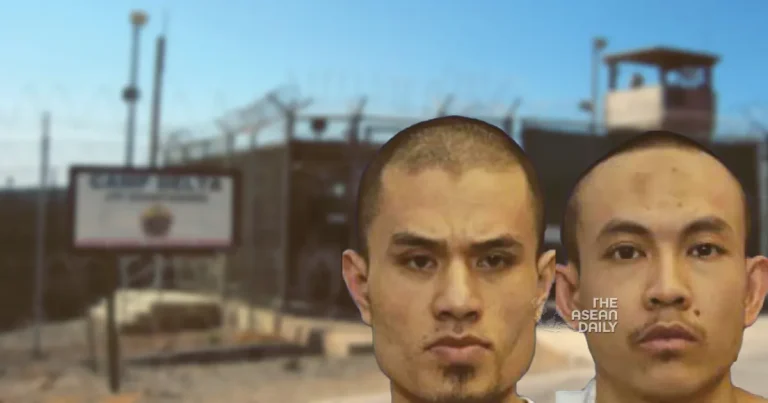12-10-2023 (KUALA LUMPUR) After a visit to the Guantanamo Bay Detention Camp in Cuba, Malaysia’s Home Minister Saifuddin Nasution Ismail has indicated that two Malaysian suspects linked to the 2002 Bali bombings may finally be on their way home. In a now-deleted Facebook post on September 25, Saifuddin revealed that he had discussed the cases of Mohammed Farik bin Amin and Mohammed Nazir bin Lep with Tina Kaidanow, the US Special Representative for Guantanamo Affairs, during a recent trip to New York with a Malaysian delegation led by Prime Minister Anwar Ibrahim.
Saifuddin stated that he had personally met the two Malaysians detained at Guantanamo Bay and expressed his desire to expedite their return to Malaysia, emphasizing their stories of repentance and the potential for rehabilitation. The two Malaysians, along with Indonesian national Encep Nurjaman (also known as Hambali), were charged in 2021 for their alleged involvement in the Bali bombings, which claimed the lives of 202 people and injured over 200 others. They were also charged in connection with a 2003 bomb attack on the JW Marriott Hotel in Jakarta, resulting in 12 fatalities.
While it is unclear when Saifuddin visited Guantanamo Bay and who accompanied him, it is known that he was part of the Malaysian delegation attending the United Nations General Assembly in New York in mid-September. Speculation has arisen regarding a potential plea deal for Farik, as court documents filed by his lawyers at the end of August sought to sever his case from his co-accused, potentially paving the way for his return to Malaysia.
James Hodes, Hambali’s lawyer, confirmed that the Malaysian delegation visited Guantanamo Bay, indicating that both co-accused may have entered into plea deals to separate their cases from Hambali. However, any plea deal does not guarantee release from Guantanamo Bay, as various agencies such as the Convening Authority for Military Commissions, the US State Department, the Department of Defense, and the Justice Department must all agree on the terms, including assurances from the detainee’s home country regarding monitoring and possible further incarceration.
The negotiation of plea deals in Guantanamo Bay is a complex process, particularly when co-defendants are involved. Testifying against each other is challenging under US law, which may explain why the cases are being severed. While Farik’s potential plea deal appears to be more advanced, Nazir has not yet agreed to give evidence against Hambali, indicating that negotiations for his case are not as progressed.
Uday Bakhshi, a Mumbai-based research analyst specializing in Southeast Asia security, expressed uncertainty regarding the timing of the potential plea deals and representations by the Malaysian authorities. He suggested that Malaysia might be attempting to set an example and demonstrate successful deradicalization programs or catering to domestic politics. Bakhshi also highlighted the connections between the two Malaysians and Hambali, including their involvement in terrorism financing for the Bali bombings, allegedly supported by Osama bin Laden, the leader of al-Qaeda.
Julie Chernov, an associate professor at Goucher College, stated that the possible plea deals for the two Malaysians align with Malaysia’s approach to handling Islamic State returnees. The country has established rehabilitation programs and institutions to accept high-risk prisoners, acknowledging the long-term process of evaluation, monitoring, and eventual rehabilitation.




